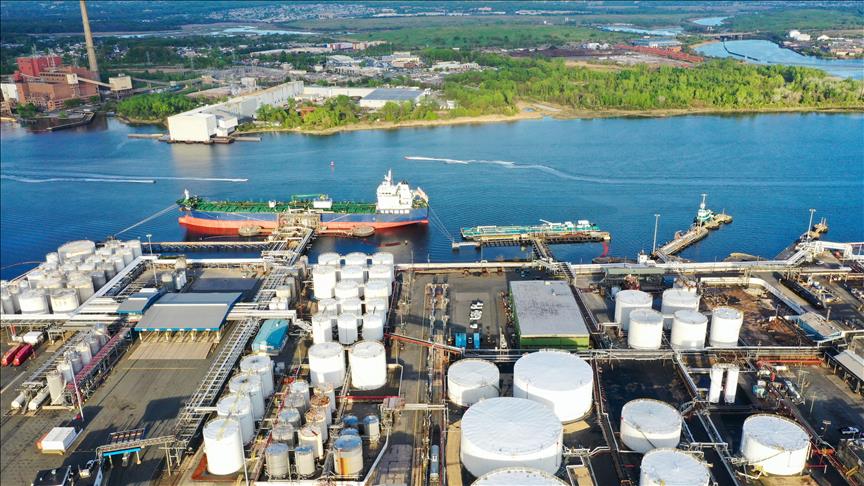Oil prices climbed on Monday after OPEC’s swing producer Saudi Arabia said it would trim production by 1 million barrels per day (bpd) in July.
International benchmark Brent crude traded at $77.55 per barrel at 10.18 a.m. local time (0718 GMT), a 1.86% rise from the closing price of $76.13 a barrel in the previous trading session on Friday.
The American benchmark West Texas Intermediate (WTI) traded at the same time at $73.18 per barrel, up 2% from the previous session’s close of $71.74 per barrel.
Both benchmarks closed last week with losses of around 2% amid ambiguity about the US Federal Reserve’s (Fed) interest rate policy, persistent recessionary fears and market uncertainty about the OPEC+ production decision.
During the OPEC+ 35th ministerial meeting, the group agreed to keep the current output cuts until the end of the year, with additional voluntary production cuts from Saudi Arabia of around 1 million bpd in July.
Saudi Energy Minister Abdulaziz bin Salman said the fresh output cuts might be extended from July onward, reducing the country’s total production by 1.5 million bpd until the end of the year if extended and bringing its production to 9 million bpd.
Last October, OPEC+ agreed to cut crude oil production by 2 million bpd until the end of 2023, but the group added further cuts of around 1.6 million bpd in April with voluntary cuts from several member countries. Saudi Arabia led the way with cuts of 500,000 bpd starting in May.
For next year, OPEC+ decided to cap total oil output at 40.463 million bpd from January to December 2024.
‘This move will add limited short-term upside price pressure in the coming weeks, according to our projections,’ according to Jorge Leon, senior vice president of oil market research at Rystad Energy.
He said the long-term price development would hinge on macroeconomic sentiment and the possible extension of the voluntary Saudi Arabian production cut beyond July.
‘The pure possibility of the Saudi production cut extending beyond July will limit downside price pressure for the rest of 2023,’ Leon added.

